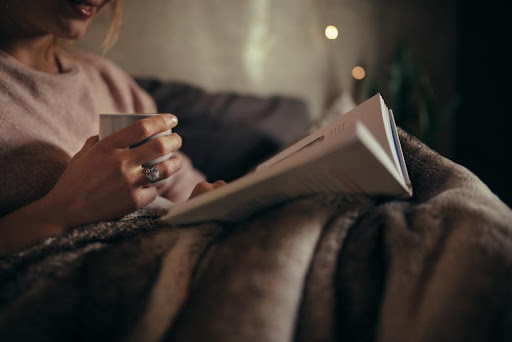Quality sleep is essential for physical and mental health and well-being. Unfortunately, sleep issues are prevalent, with approximately one-third of adults experiencing difficulty sleeping regularly. Many people seek natural alternatives to improve their sleep without relying on prescription medications and do this through the use of natural sleep aids. And that’s where we come in. We’re here to provide you with information on ten natural sleep aids and offer additional tips for better sleep. So from the virtues of valerian root to how wise it is to invest in the best mattresses out there, we’ve got you covered from start to finish.
Understanding Sleep Aids and Consultations
Sleep aids are substances or methods that help with regulating sleep patterns and improving the overall quality of your sleep. Prescription sleep aids require exactly that — a prescription from a healthcare professional — and are typically stronger than natural sleep aids. Natural sleep aids include supplements, teas, aromatherapy and lifestyle changes. It’s important to note that although natural, these aids must also be used correctly and sometimes in moderation.
Before taking any sleep aids, you should consult with a healthcare professional, such as a doctor or pharmacist. This consultation will help ensure that the sleep aids you’re looking at do not interact negatively with other medications you’re taking. It also helps to talk to the pros to help identify the root cause of any sleep-related disorders. With that said, let’s explore the ten natural sleep aids to help you rest.
Natural Sleep Aids to Help You Sleep
- Melatonin
Melatonin is a hormone produced naturally by the body to regulate sleep-wake cycles. Melatonin supplements are available over the counter and can be useful for those struggling with sleep issues. Most people find that taking it an hour before bed helps them fall asleep quicker and stay asleep longer.
- Valerian Root
Valerian root is an herb with a storied history of use as a natural sleep aid. It is available in various forms, such as capsules or teas. Research suggests that valerian root may be effective in improving sleep quality, but more investigation is needed to determine its long-term effects. .
- Chamomile
Chamomile is a popular herbal tea known for its calming properties. Chamomile can be consumed as tea or taken as a supplement to promote relaxation and sleep. While research on chamomile’s effectiveness as a sleep aid is limited, many people find it helpful in improving sleep quality. Potential side effects of chamomile include allergies for those with sensitivity to ragweed.
- Lavender
Lavender has been used throughout history as a natural sleep aid due to its calming properties. Lavender essential oil can be used in various ways, such as in a diffuser, added to a bath or applied topically with carrier oil. While research on lavender’s effectiveness as a sleep aid is ongoing, many people use it because they find it helpful in promoting relaxation and sleep. Possible side effects of using lavender oil may include skin irritation or allergic reactions, and it’s essential to use it as directed and to consult with a healthcare professional before use.
- Magnesium
Magnesium is a mineral that can promote relaxation and sleep. It is involved in more than 300 metabolic reactions in the body, including maintaining normal nerve and muscle function, heart rhythm, vasomotor tone and blood pressure. Importantly for us, magnesium supplements can help improve sleep quality, especially for those with magnesium deficiencies.
Source: Sergey Neanderthalec/Shutterstock.com
- L-Theanine
L-theanine is an amino acid that’s commonly found in tea leaves. It has calming properties that can promote relaxation and improve sleep quality. L-theanine supplements can be taken without causing drowsiness, making them an appealing option for those who want to improve their sleep without feeling lethargic the next day. Research suggests that L-theanine is effective in reducing stress and may help improve sleep quality.
- Passionflower
Passionflower is a traditional herbal remedy for anxiety and insomnia. Passionflower can be consumed as a tea or taken as a supplement to improve sleep. Research suggests that passionflower may be helpful in treating mild sleep disorders, but more studies are needed to confirm its effectiveness.
- Lemon Balm
Lemon balm is a herb that has been historically used as a sleep aid due to its calming properties. Lemon balm contains chemicals that seem to have a sedative and calming effect, which can promote sleep. These chemicals include rosmarinic acid, eugenol and citronellal. It can be consumed as tea or taken as a supplement to promote relaxation and sleep.
- Tryptophan
Tryptophan is an essential amino acid that plays a vital role in the production of serotonin and melatonin, which are neurotransmitters that regulate sleep. Tryptophan supplements can be taken to promote sleep, and it’s also available in certain foods, such as turkey, chicken and tofu.
- GABA
GABA is another neurotransmitter, and it is known for producing a calming effect. Some believe it plays a major role in controlling nerve cell hyperactivity associated with anxiety, stress and fear. It is also considered an inhibitory neurotransmitter because it blocks certain brain signals and decreases activity in the brain. While some studies show that GABA supplements may help with anxiety and sleep-related disorders, more research is needed to fully understand its full benefits and long-term effects. GABA supplements can be found at many health stores.
5 Additional Tips for Better Sleep
While sleep aids can be helpful, they are just one piece of the puzzle for improving sleep quality. Here are five additional tips for better sleep:
- The Right Mattress
Investing in a comfortable and supportive mattress is crucial for achieving quality sleep. A good mattress can alleviate pain, improve circulation and help regulate body temperature. Look for a mattress that conforms to your body shape and provides sufficient support for your back, such as Nectar mattresses.
- Comfortable Pillows
Pillows play a vital role in maintaining proper spinal alignment and reducing discomfort during sleep. Cooling pillows can help alleviate hot flashes, night sweats and sleep apnea while also keeping you comfortable throughout the night.
- Establishing a Bedtime Routine
Creating a consistent pre-sleep routine can signal the body and mind to wind down and prepare for rest. Incorporate calming activities such as reading, taking a warm bath or listening to soothing music.
- Controlling the Sleep Environment
The sleep environment plays a significant role in our ability to get quality sleep. Maintain a dark, quiet and cool bedroom for optimal sleep conditions. Use blackout curtains, earplugs or a white noise machine to reduce distractions.
- Limiting Exposure to Screens and Stimulants
Reducing exposure to blue light from screens and avoiding caffeine or nicotine can improve sleep quality. Limit screen time before bedtime and replace it with relaxing activities such as yoga or meditation. Opt for decaf drinks or herbal teas in the evening.
Embrace the Sweet Dreams of Restful Nights
With a variety of natural sleep aids and lifestyle changes at your disposal, achieving the restful slumber you deserve is closer than you think. Remember, always consult a healthcare professional before incorporating any sleep aids into your routine to ensure they’re appropriate for your individual needs and don’t interfere with any other medication you may be taking. By combining these natural sleep aids with a comfortable sleep environment, a consistent bedtime routine and mindful habits, you’re setting the stage for a rejuvenating and blissful night’s sleep. Sweet dreams!







